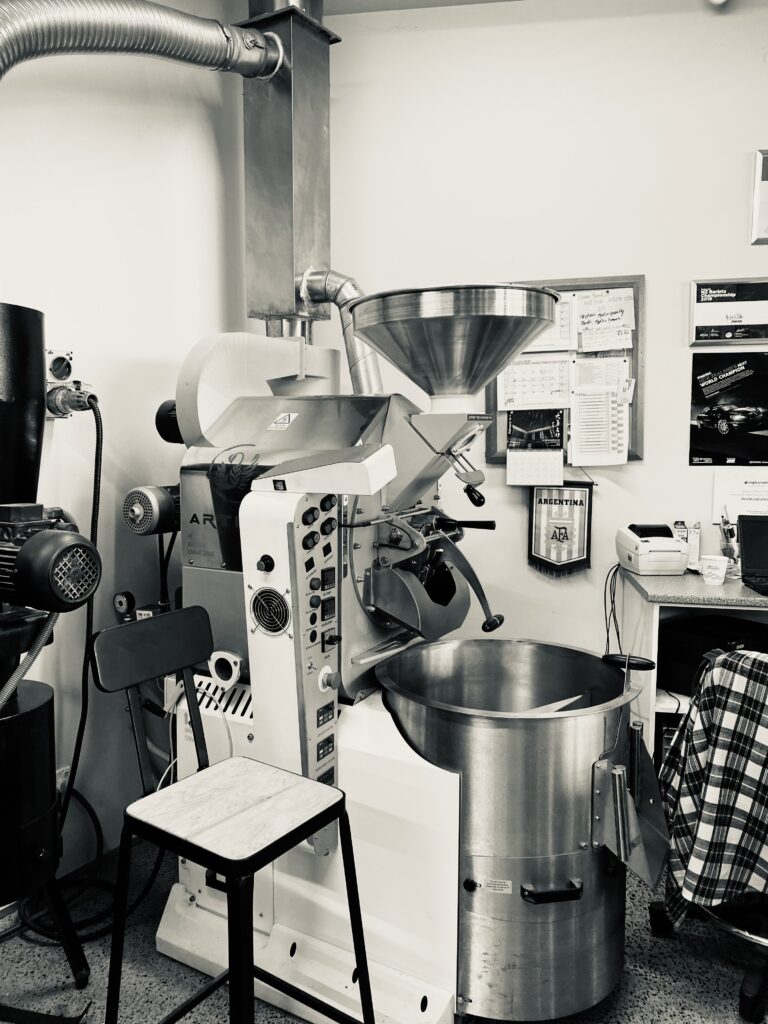Background
The NZ Speciality Coffee Association and EECA have entered into a Memorandum of Understanding (MoU) designed to accelerate the decarbonisation of energy used within the coffee roasting sector.
The partnership helps develop guidance for individual businesses on how to act and invest to reduce energy-related emissions and define their own decarbonisation pathway.
A key component is to consolidate and share the most up-to-date process and technology innovations from around the world, and locally, to ensure that the sector can make the most informed investment decision.
EECA has co-funding opportunities such as the Technology Demonstration Fund which aims to demonstrate the potential of new technology or process improvement opportunities in New Zealand to support reducing risk for first adopters. An outcome of this report may lead to opportunities for further technology demonstration for the industry.
Tools and resources
Working together on collective challenges results in the best solutions. That’s why we have made sure that you, the New Zealand coffee roasters have access to tools and resources to help you take positive action towards emissions reduction and adapt for a low-carbon future.
These tools and resources have been developed by industry experts and are supported by the New Zealand Speciality Coffee Association.
Step One: Sign up to the pathway
For a fully curated experience, we recommend you sign up for our free Coffee Decarbonisation Pathway which will deliver tools and resources directly to your inbox. We’ll also alert you when new resources and events are added.
Step Two: How do I measure?
The most important step in energy management and conservation is measuring and accounting for energy consumption. This energy calculator will enable you to measure your current energy use and identify potential energy and cost opportunities.
Step Three: Optimise equipment and improve processes
Reviewing and adjusting the way equipment performs can be a big win for energy reduction, as well as cost and productivity.
Use the coffee roasting check sheet as a guide to identify opportunities for your business to optimise and improve productivity and efficiency — and reduce cost.
Case Study:
There are a lot of opportunities to move your goods or products to reduce your emissions and costs.
Step Four: Reduce energy demand
New technology or upgrades to existing processes can reduce energy demand.
We are exploring new technical solutions and reviewing the best global approaches and innovations toward energy transition and decarbonisation in the coffee roasting sector.
Global Scan
A global technology scan researching the innovation options within the coffee roasting sector to demonstrate methods for reducing emissions from energy use for New Zealand’s coffee sector. The document will identify emerging technologies and innovations within the sector both locally and globally and define how these could be applied within the New Zealand context.
Scope of work
A report is required in the form of a global scan, that focuses on energy-related emission reduction and technology innovations specifically addressing energy emissions for coffee roasting, including:
- Identify specific carbon reduction technologies, processes, and innovations from around the world and locally. Directly contacting suppliers and manufacturers is an expectation.
- Including the technical readiness level of the technologies and applicability in an NZ context.
- Indicative estimates of relative costs and benefits including emissions reduction potential of identified opportunities.
- Information/knowledge sharing references from leading global experts.
- Identify relevant case studies that demonstrate the application of the opportunity.
- Where identified, potential technology suppliers; and
- This scope addresses phase 1 of the study and is expected to be a desktop study where outcomes will be presented in a method that is appropriate to the audience.
We will be reporting back on this Global Scan at the NZSCA AGM at Toitoi, Hastings on Friday 24 May 2024.
Step Five: Switching to renewable energy
Watch this space!
